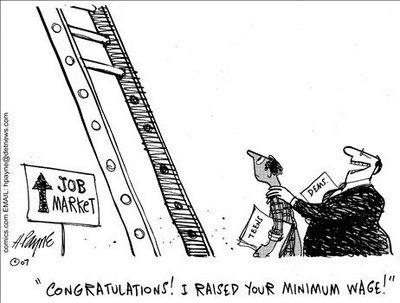Ernie Goss: Rising Minimum Wage Means Less Hours For Workers

The current popular rant among many non-economists is that opposition to raising the minimum wage is equivalent to opposition to worker rights. Those who are more intellectually curious will find there is no theoretical basis for this conclusion and empirical studies have come down on both sides of the argument–i.e. increasing the minimum wage is beneficial to workers, or boosting the minimum wage is harmful to workers.
Total wages in a state are the product of the number of hours worked and the hourly wage rate. Raising the minimum wage may diminish the number of hours worked to the point that total state wages shrink instead of expanding.
There are currently 24 U.S. states and DC that have a minimum wage above the federal level, and 27 states with a minimum wage that is at or below the federal minimum hourly wage of $7.25. Since the beginning of the economic recovery in 2009 extending through 2013, the states with minimum wages above the federal level, compared to states with minimum wages at or below the federal minimum, experienced, on average: 3.1% lower gross domestic product growth (GDP), 0.3% lower job growth, and 0.2% higher welfare payments.
On the other hand, these same high minimum wage states experienced a 0.4% lower increase in the median poverty rate than states with minimum wages at or below $7.25. Furthermore, Washington, the state with the highest minimum wage in the nation at $9.32, underperformed the 27 low minimum wage states in GDP and job growth during the recovery period, but did experience a slower growth in its poverty rate.
This analysis is certainly not definitive and does not control for other important factors influencing a state’s economy. But it does at least question the popular notion, or “accepted science” that raising the minimum wage is necessarily a winner for the state economy.




